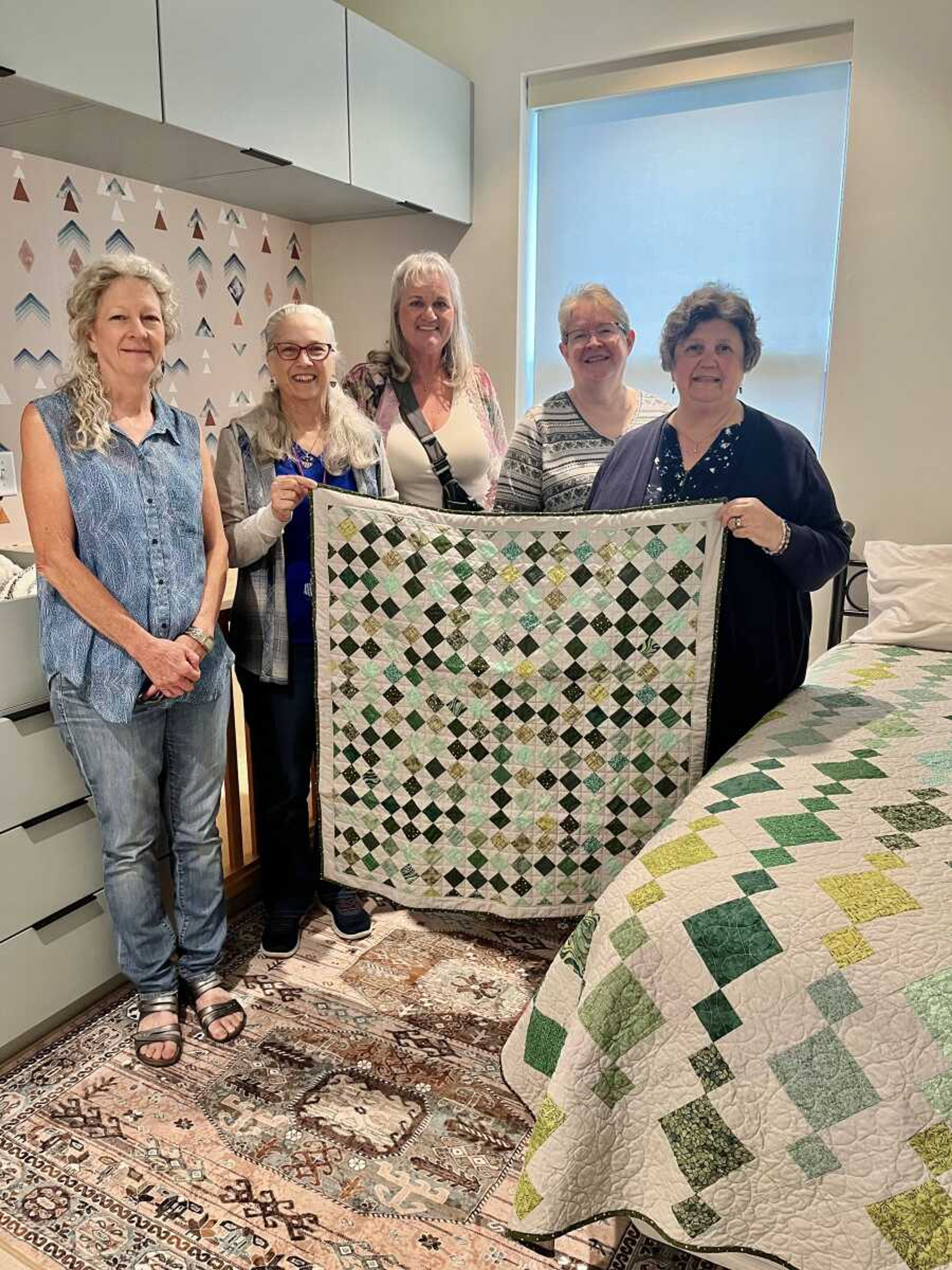A new approach to veterans' justice
During a recent meeting held at the Capitol office of state Rep. David Day, R-Dixon, a new justice model for military veterans that is taking root across the nation was the topic of an energized discussion. Representatives from the Silver Star Families of America, the Harry S. Truman Memorial Veterans Hospital, and Office of State Courts explained the benefits yielded by adopting a state veterans' court model...
During a recent meeting held at the Capitol office of state Rep. David Day, R-Dixon, a new justice model for military veterans that is taking root across the nation was the topic of an energized discussion.
Representatives from the Silver Star Families of America, the Harry S. Truman Memorial Veterans Hospital, and Office of State Courts explained the benefits yielded by adopting a state veterans' court model.
"Local level courts often do not understand the stressors many of our veterans experience when deployed overseas," stated Thomas Huber, local attorney and veteran of the Air National Guard.
"These are good people who return from deployment and find it difficult to cope with the grizzly experiences they've witnessed," Huber added. They often turn to drugs and alcohol to help them...which can eventually lead to their interaction with the criminal justice system."
Huber and other meeting attendees shared stories of veterans they have worked with who were "model citizens" prior to their overseas service; however, eventually wound up facing significant judicial sanctions--sometimes incarceration--simply because they did not receive the treatment and help necessary to successfully reintegrate into their communities.
The discussion focused on a burgeoning therapeutic model of justice known as veterans' courts. These courts are based upon the drug court model in which "clients" participate in a court monitored treatment program rather than undergoing the traditional adjudication process.
Clients generally must submit to periodic urinalysis testing and report back to a judge on a regular cycle to discuss their overall treatment progress. As often is the incentive with such programs, the client's criminal charge is expunged upon successful completion of the treatment regimen.
A client's failure to comply with treatment or other court requirements can lead to the imposition of increased sanctions or removal from the drug court program and sentencing through traditional court methods.
Such sentencing alternatives have not only freed up courts to address more serious criminal infractions, but have provided many non-violent offenders with an opportunity to embrace the resources necessary to again become productive members of society.
With the success drug courts have experienced nationwide, and more specifically in Missouri as seen with the recent milestone of 10,000 program graduates, the model has expanded to many states and localities to address certain offenses committed by veterans.
"Veterans often face challenges that the average person never has to deal with nor understands," stated Rep. Day, a veteran of the U.S. Army.
"I think we all agree that this is the right thing to do for our servicemembers and veterans, but we just need to figure out how to get there."
With an estimated 50 veterans' courts operating throughout the country, some states have adopted state-level legislation to ensure consistency in the application of sanctions between the various courts within their borders.
To that end, state Rep. Jay Barnes, R-Jefferson City, has agreed to sponsor a bill next year which would establish a Missouri veterans' court model.
Rep. Paul Fitzwater, R-Potosi, and Rep. Ron Casey, D-Crystal City, have also expressed their support in co-sponsoring the legislation, while Sen. Mike Kehoe, R-Jefferson City, has indicated an interest in filing concurrent legislation in the state senate.
"We are not reinventing the wheel on this endeavor," asserted Greg Linhares, state courts administrator and also a veteran. "We can mirror and incorporate the veterans' court model within the drug court structure and expand it to include specific offenses that are linked to one's military service."
Supporters are currently working to draft the language of the proposed legislation and remain excited about the possibility of linking veterans to treatment programs focused on rehabilitation and the prevention of recidivism.
With the average yearly cost of incarceration at $30,000 per offender, supporters of the veterans' court model said that it makes fiscal sense to support the implementation of such a model.
"It's cost beneficial to establish such a court," stated Huber. "These individuals often have treatment resources already accorded them through such agencies as the Department of Veterans Affairs," he added.
And even in the potential absence of VA resources, the average cost of treatment for those in a traditional drug court model is estimated at $3,000--a fraction of the cost of incarceration.
"These folks are going to go before a judge one way or another," stated Rep. Day. "Let's just make sure that it is an effective meeting that takes into consideration the profound sacrifices they have made for our state and country."
Jeremy P. Amick is a life member of the Disabled American Veterans and public affairs officer for the Silver Star Families of America.
Connect with the Southeast Missourian Newsroom:
For corrections to this story or other insights for the editor, click here. To submit a letter to the editor, click here. To learn about the Southeast Missourian’s AI Policy, click here.










